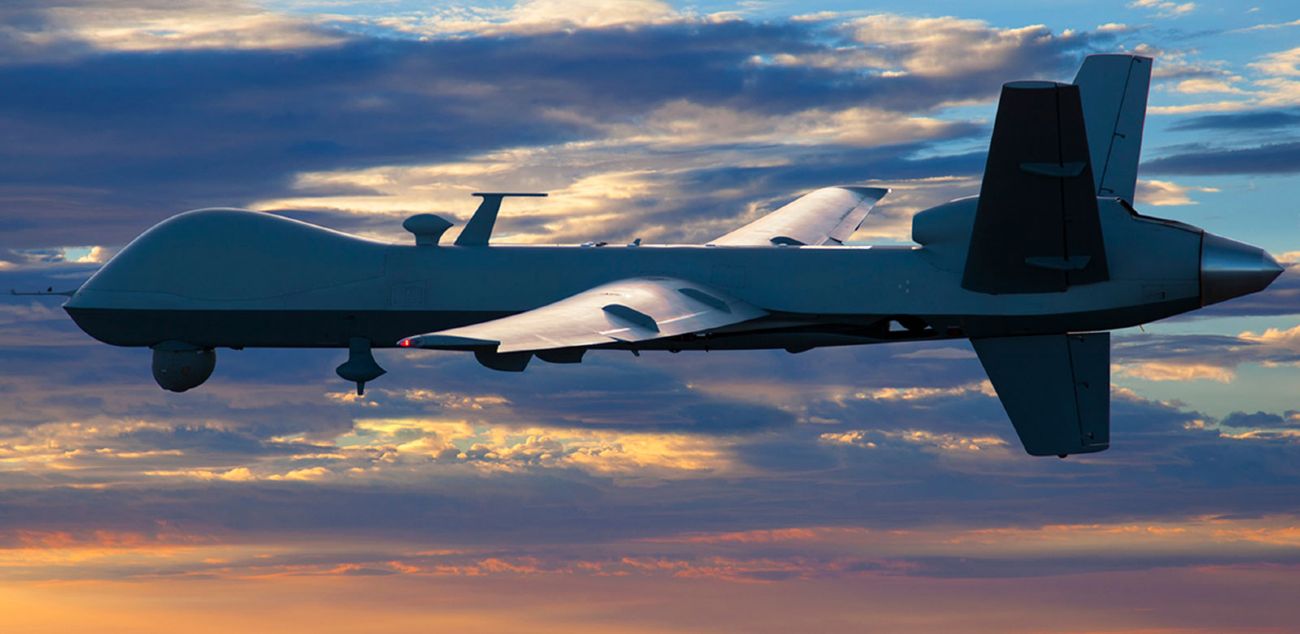The United States (US) and the United Arab Emirates (UAE) are poised to finalize a long-awaited deal to procure 18 MQ-9B SeaGuardian drones. This breakthrough comes after years of delay and diplomatic hurdles that had stalled the agreement.
The roots of this deal trace back to 2020 when the State Department greenlit the sale of 18 MQ-9B SkyGuardians and associated technology to the UAE, totaling nearly US$3 billion.
However, the deal encountered obstacles amid concerns surrounding the UAE’s utilization of Huawei’s 5G network. These concerns prompted the Biden administration to suspend the MQ-9 deal in 2021, alongside the procurement of F-35s for the Gulf nation.
Breaking the impasse, David Alexander, president of General Atomics Aeronautical Systems (GA-ASI), shed light on this progress during the Unmanned Systems Exhibition, UMEX 2024, in Abu Dhabi.
Alexander highlighted the successful separation of the MQ-9 and F-35 procurement issues, a pivotal step toward moving the agreement forward, according to reports.
He acknowledged that unresolved issues had caused a significant delay, but the successful resolution has paved the way for moving forward with the MQ-9 deal.
The US State Department has also affirmed its commitment to ongoing discussions, signaling a willingness to proceed with the MQ-9 sale.
With the separation of the MQ-9 and F-35 deals now confirmed by General Atomics, it is highly anticipated that the UAE could procure 18 MQ-9B SeaGuardians within the current year.
The president of General Atomics Aeronautical Systems (GA-ASI) said, “A formal letter of request from the UAE to be resubmitted between three and six months from now.”
The revival of this deal signifies a breakthrough in diplomatic negotiations and opens up avenues for exploration on multiple fronts.
Importance Of MQ-9 For UAE
As the deal progressed, David Alexander addressed concerns related to Chinese networking technology. He clarified that the MQ-9B operates exclusively through satellite links, emphasizing that the presence of Chinese networking technology does not threaten its security.
This clarification aims to alleviate any potential concerns and underscores the technological resilience of the MQ-9B in the context of evolving geopolitical considerations.
Last year, General Atomics revealed plans to integrate Emirati EDGE Group missiles onto the MQ-9B SkyGuardian platform, marking a significant step towards enhancing the UAE’s defense capabilities and promoting its independence in defense procurement.
While integrating foreign munitions onto US platforms is not unprecedented—examples include using Paveway and Brimstone missiles from the UK on the MQ-9—the UK and the UAE stand out as the only countries approved by the US government for such integration.
For the UAE, this represents a significant milestone in pursuing defense independence, reducing reliance on foreign suppliers, and bolstering its overall defense strategy.
David Alexander highlighted that this initiative would be the first instance of indigenous weapons from the region being integrated into a US platform. He said this demonstrates the trust the US government placed in Emirati capabilities.
The prospect of UAE-made munitions on the MQ-9 platform also holds promise beyond the Emirates, potentially offering alternative supply options for countries wary of embracing Western arms.

Although the UAE’s capacity for missile production may be limited, this could present a viable solution for nations not facing immediate military threats and seeking alternatives to Western weaponry, particularly in light of geopolitical considerations such as competition for arms with regions like Ukraine.
If the MQ-9 deal reaches fruition, General Atomics will oversee platform production in the US, with missile integration and testing slated to occur in the UAE.
Experts view the MQ-9B as a game-changer for the UAE, enhancing surveillance, reconnaissance, and potential strike capabilities, thereby bolstering regional security.
This move also underscores the growing demand for drone technology in the Middle East, with General Atomics anticipating interest from other regional actors, including Saudi Arabia.
As the MQ-9 deal progresses, it promises to reshape defense dynamics in the region, positioning the UAE as a critical player in unmanned aerial systems and indigenous defense capabilities.
However, in recent months, the MQ-9B UAV has been scrutinized for its vulnerabilities when operating on the modern battlefield. This concern has been highlighted by incidents in which adversaries successfully downed the UAV, prompting a reevaluation of its effectiveness and resilience in contested environments.
- Contact the author at ashishmichel(at)gmail.com
- Follow EurAsian Times on Google News